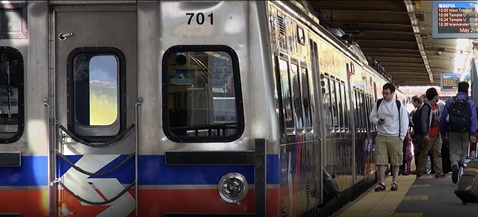
Addressing the transportation funding crisis.
The Southeast Partnership for Mobility (Partnership), a collaboration between the Pennsylvania Turnpike Commission and Southeastern Pennsylvania Transit Authority (SEPTA) in coordination with the Pennsylvania Department of Transportation (PennDOT), was created in late 2017 to develop a blueprint to meet the region’s growing mobility challenges and to develop potential solutions to address the impacts of changes coming to Act 44 public transportation funding sources.
After a 15-month study, the Partnership, issued a report that provides lawmakers and local elected officials with the necessary background to:
- Secure statewide public transportation funding to ease the PA Turnpike’s need for future toll increases and ensure stable funding for public transportation.
- Pass enabling legislation to allow the new local revenue sources to be invested in projects to accommodate and accelerate regional growth.
An Advisory Council comprised of leaders representing the region’s major employers, civic associations, elected offices, and transportation agencies advised the Partnership with thoughtful guidance that is reflected throughout the report.

Transportation is not a cost; it is an investment.
The report details how the region is a critical driver of the statewide economy and the role that SEPTA plays, noting that southeast Pennsylvania generates 41 percent of the state’s total economic activity and is home to 32 percent of its population on just 5 percent of its land. The Philadelphia region has grown by more than 100,000 new residents since 2010. This level of density and economic productivity is only possible with a high-capacity transit system to keep the region moving. Review SEPTA’s Economic Portal for more details.
SEPTA has also identified four game-changing projects that will help to transform the region. Click here to learn more about the SEPTA Projects of Significance Economic and Fiscal Impact.
PA Turnpike and its customers need relief from Act 44.
Act 44 required the PA Turnpike to provide PennDOT with $450 million annually for highways, bridges, and public transit, with Act 89 of 2013 modifying the payments to dedicate the full amount to public transit. In 2022, PA Turnpike payments to PennDOT for transit will be reduced to $50 million and then $450 million will be provided from the state’s General Fund. The report makes it clear that the state’s current system for financing transit statewide, which is heavily dependent on PA Turnpike tolls, is increasingly at risk. The PA Turnpike needs to provide relief to its customers from excessive toll hikes and make critical investments in new interchanges to power economic growth across our entire commonwealth.
To maintain the baseline of $450 million to support Pennsylvania’s public transportation systems, the legislature should consider alternative funding sources and timing. For example beginning now, gradually transition the PA Turnpike payments to provide the PA Turnpike with sooner. There are several benefits as follows.
The Benefits of a Gradual Stepdown
Gradual transition to general fund
Additional relief to PA Turnpike
Additional bondable revenue to PA Transit Operators
Quicker toll rate stabilization




